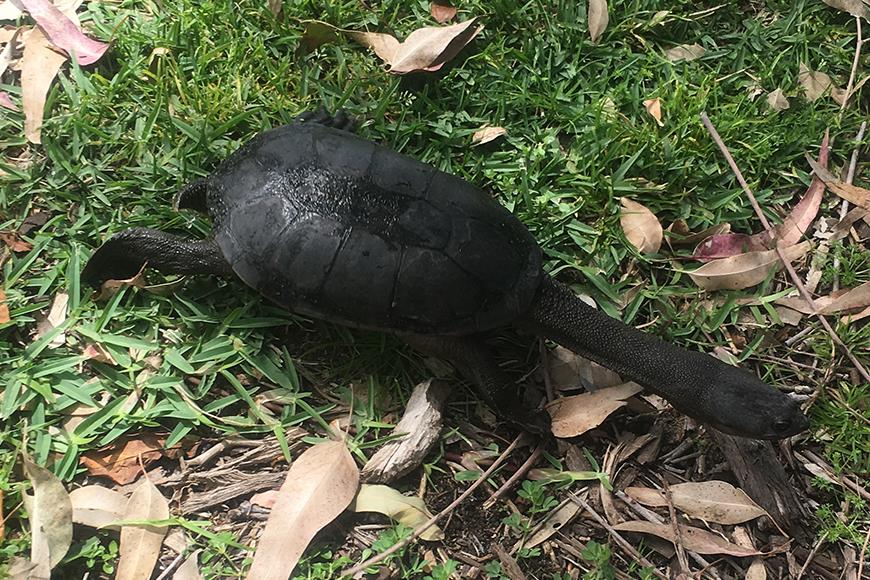Slow down for long-neck turtles
The City's wetlands are home to a rich and diverse range of fauna including Chelodina colliei, also known by other names including the South Western long-necked turtle, in reference to the turtle’s long neck, and the oblong turtle, in reference to the shape of its shell.
The shell of the species is generally a dark brown to black colour with the underside being pale whitish/yellow in colour. Chelodina colliei generally mate in winter and spring within wetlands with the female nesting seasons occurring in spring and summer in permanent systems.
Female Chelodina colliei construct nests in the surrounding terrestrial habitat preferring open sites with soft sandy soil, usually within 500m from the water’s edge.
Eggs take approximately 220 days to incubate, and hatchlings generally emerge from the nest in August. They are not cared for by the parents, they are independent from birth and feed themselves.
The overland movement, by hatchlings and breeding females, back to the wetland is when they are most vulnerable to predators such as foxes, ravens and ibis. They are also at risk of injury or death from vehicle movement.
What you can do
- Slow down and keep an eye out when driving around the wetland areas such as Bodkin Park in Waterford and Neil McDougall Lake in Como
- If you do see turtles crossing the road please stop and allow them to pass, don’t try to pick them up or move them
- If you find an injured turtle please call the Turtle oblonga rescue and rehabilitation network
Find out more here.

Contact us
- Phone 9474 0777

